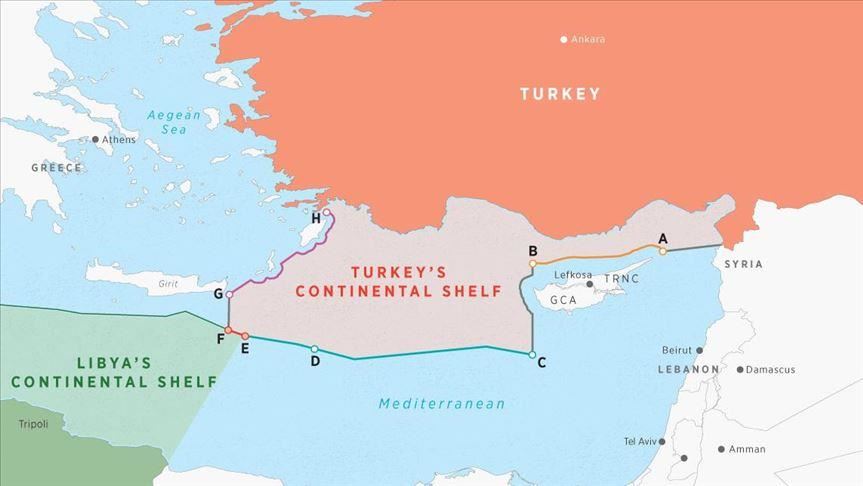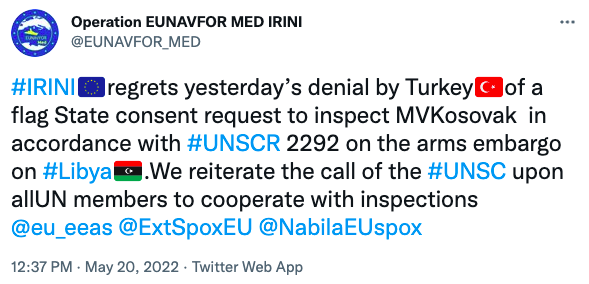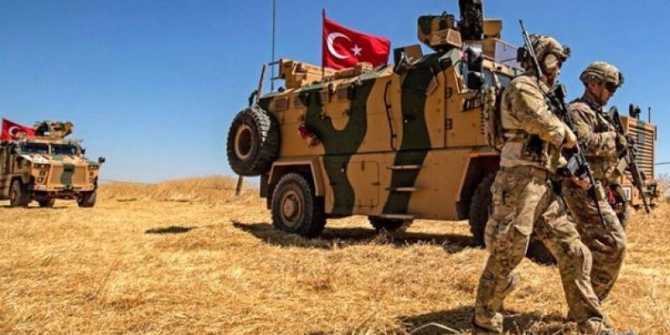Levent Kenez/Stockholm
Turkish President Recep Tayyip Erdoğan, as expected, sent parliament a motion on Monday calling for an extension to troop deployment in Libya for another 18 months. As in a previously approved presidential motion, the number of troops to serve and when or where they will be deployed are left completely to the discretion of President Erdoğan.
The latest presidential motion, which reads almost word-for-word as the previous ones in 2020 and 2021, states that “the so-called Libyan National Army, which has no place in the Libyan Political Agreement and is illegitimate both nationally and internationally, launched an attack to seize the capital Tripoli on April 4, 2019, with the aim of overthrowing the Government of National Accord [GNA].
“These attacks targeting civilians and civilian infrastructure created a suitable environment for ISIS [Islamic State in Iraq and Syria], al-Qaeda and other terrorist organizations, illegal armed groups, illegal migration and human trafficking, which threaten Libya’s integrity and stability, and as a result, the GNA requested support from Turkey in December 2019.”
It was also pointed out that Turkey continues to provide training and consulting within the scope of a memorandum of understanding (MoU) between Turkey and Libya on comprehensive security and military cooperation signed in 2019. The motion claims that it is not yet possible to achieve a permanent ceasefire in Libya or to conclude the process of political dialogue.
Emphasizing that the risks and threats posed to the entire region, including Turkey, persist in Libya, Erdoğan claimed that if the attacks against the legitimate government resume, Turkey’s interests both in the Mediterranean and in North Africa would be adversely affected.
In the concluding paragraph, the Turkish president requests the approval of parliament to send Turkish troops to foreign countries for operations and interventions in order to effectively protect Turkey’s interests and to help pursue a dynamic policy so as to to avoid facing a situation that can’t be remedied, adding that the scope of operations, number of troops and time deployed will be determined by him.
The use of the word “countries” instead of “Libya” as the country to which troops will be sent allows Erdoğan to send troops to any destination he deems necessary, on the grounds of protecting Turkey’s interests.
For instance, Erdoğan may take action against another country within the scope of the new motion, claiming that there is a violation in the eastern Mediterranean regarding the implementation of the Turkey-Libya Maritime Boundary Delimitation Agreement signed in 2019. The maritime agreement, which is not recognized by any Mediterranean country, determines the Turkey-Libya joint continental shelf and exclusive economic zone (EEZ),
Erdoğan said last week that Greece had militarized some islands in the Aegean contrary to international agreements, saying Turkey could intervene and that he wasn’t joking. Political observers believe that before the presidential election next year, Erdoğan wants to take advantage of creating a wave of neo-nationalism at home and that a cross-border military operation against Kurds in Syria was brought to the agenda by Erdoğan last month for this purpose.

There is no obstacle to the adoption of the bill, which is expected to soon be on parliament’s agenda since Erdoğan’s ruling party and its far-right partner, the Nationalist Movement Party (MHP), have the majority in the legislature. The Turkish parliament had first authorized the Turkish government to send military forces to Libya on January 2, 2020 and extended the motion on January 2, 2021.
The main opposition Republican People’s Party (CHP) had previously voted against the motion, arguing that a UN peacekeeping force should be deployed in Libya and that Turkey should take part in this force.
The right-wing opposition İYİ (Good) Party also voted against it, claiming that being part of an Arab civil war, as in Syria, would not benefit Turkey.
The pro-Kurdish Peoples’ Democratic Party (HDP) was also against the motion, stating that Turkey would be a part of the war.
Turkey played a significant role in the military success of the UN-backed GNA against the rebel opposition led by Khalifa Haftar, a retired general who was trying to seize power in Libya. Turkey sent not only weapons, ammunition and drones but also organized Syrian mercenaries and jihadists to fight against Haftar. Haftar’s goal of seizing Tripoli abruptly ended after Turkey intervened with its supply of multi-purpose Bayraktar TB2 drones, which were manufactured by Turkish company Baykar Makina. Baykar is led by Erdoğan’s son-in-law Selçuk Bayraktar.
It is no secret that in addition to supporting the government, which is ideologically close to him, Erdoğan repeatedly said Libya’s oil and gas resources were important factors in Turkey’s interest in the country.
The Erdoğan government has been criticized by international and regional organizations for committing regular and increasingly blatant violations of the UN arms embargo on Libya. Turkey does not allow the European Union Naval Force to inspect its ships within the scope of Operation IRINI, which was launched on March 31, 2020 with the primary mission of enforcing the United Nations arms embargo. Turkey has so far turned down seven requests from IRINI.

Nordic Monitor previously published a report that was submitted by experts to the UN Security Council, claiming that arms manufactured by Iran ended up in Libya with the help of the Turkish government.
Turkish-backed armed factions in the GNA received a Dehleyvah anti-tank guided missile (ATGM) system as well as a Misagh-2 man portable air defense system (MANPADS), both of which were manufactured in Iran. In their assessments in March 2021, the Panel of Experts on Libya said it believed it was Turkey that supplied the Iranian-made weapons to Libyan factions in clear violation of UN sanctions.












